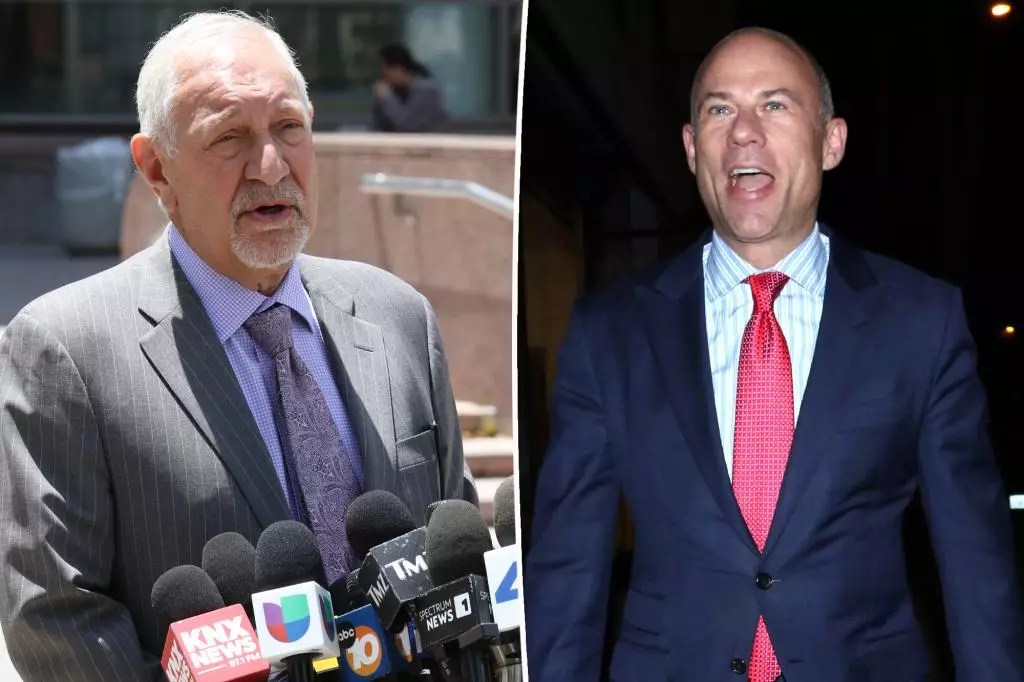In the high-stakes world of legal drama, even the most revered attorneys are not immune to scrutiny. The recent revelations involving Mark Geragos shatter the myth that top-tier lawyers operate above reproach. Known for representing celebrities like Michael Jackson, Chris Brown, and Winona Ryder, Geragos has long cultivated an image of unassailable authority and skill. Yet, a civil court’s decision to hold him liable for aiding misconduct highlights a brutal truth: legal brilliance does not exempt one from moral and ethical accountability. This case underscores the peril of equating courtroom success with personal integrity—powerful figures can be ensnared within their own web of influence and deception.
The Cost of Complicity and the Erosion of Trust
The case originated from Michael Avenatti’s disgraceful misconduct, specifically his attempt to blackmail Nike while representing basketball coach Gary Franklin. Geragos’s involvement, though seemingly peripheral at first glance, unveiled a darker reality. The jury found that he provided substantial encouragement to Avenatti’s wrongdoing, betraying a professional duty to uphold justice. The $100,000 judgment is symbolic—it reflects not just financial liability but also the compromising of public trust in legal professionals. Trust in attorneys hinges on their ethical commitment; when figures like Geragos falter, they erode the very foundations upon which justice is built. This case serves as a stark reminder that appearances of influence can mask underlying complicity, ultimately damaging the reputation of the justice system itself.
The Fallibility of Even the Most Experienced Attorneys
Geragos’s reputation as a seasoned lawyer with a storied career often shields him from public criticism. However, the civil court’s decision reminds us that experience and notoriety do not guarantee moral infallibility. Critics argue that Geragos’s alleged knowledge of Avenatti’s misconduct and his subsequent support reveal a troubling willingness to prioritize reputation or client interests over ethical principles. The jury’s findings—particularly that Geragos breached duty of loyalty—highlight that professional conduct must be rooted in integrity, regardless of status. In a broader sense, this case challenges the professional community to introspect: how many other esteemed lawyers might be bending rules behind closed doors? The real failure lies not in the verdict itself but in the silent complicity that often accompanies power—an issue that demands honest reflection within the legal industry.
Beyond the Courtroom: The Real Cost of Moral Compromise
While the $100,000 penalty may seem relatively modest compared to Geragos’s high-profile status, the damage inflicted extends beyond monetary figures. The case exposes the peril of putting personal advantage over ethical standards, raising questions about how many legal professionals might operate in gray areas, hiding behind reputations of invincibility. For the public, it’s a sobering lesson: justice is a fragile construct, susceptible to manipulation by those who wield influence. For Geragos, the verdict should serve as a wake-up call—a stark reminder that long-term credibility cannot be bought or maintained through strategic spins or legal maneuvering. It must be rooted in genuine adherence to moral principles. Ultimately, the real victory lies in honesty and accountability, which cannot be legislated by courts but are essential for any profession claiming to serve justice.
